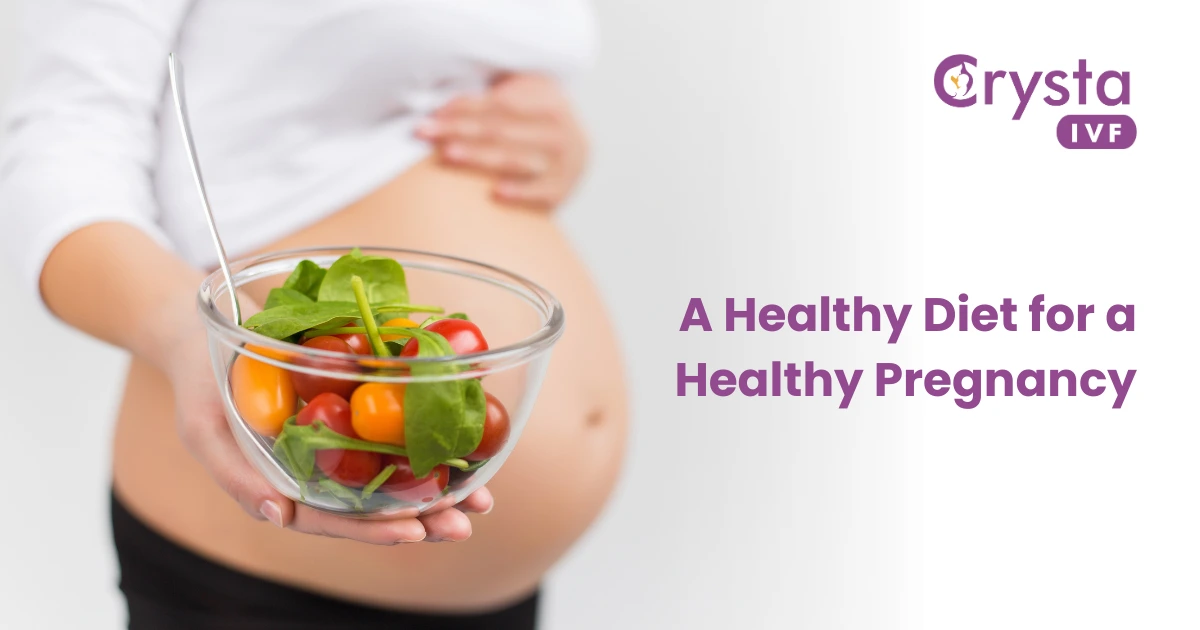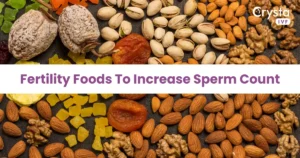From Sep 1 to 7, National Nutrition Week spreads information about the importance of nutrition in the human body. In a world where dietary choices can profoundly impact our overall well-being, this observance is crucial in emphasizing the importance of balanced nutrition.
This week, pregnant women are the one group whose nutritional needs require special attention. The pregnancy journey is beautiful and transformative, demanding careful consideration of dietary choices to ensure the health and development of both mother and baby. To shed light on this critical aspect of maternal health,
let’s explore some essential nutrients for pregnant women and study what food to eat and vegetables to avoid during pregnancy by healthcare experts.
Top Nutrients for a Pregnant Women
You are probably taking too much prenatal vitamin and trying your best to maintain a healthy and balanced diet during your pregnancy so that you can achieve in the end despite dealing with the morning sickness every morning.
While National Nutrition Week puts importance on fulfilling your plate with all the nutritious food, the best thing you can do to support your growing baby and lower your risk associated with pregnancy complications like anemia, gestational diabetes, and preeclampsia. Filling your plate with the right nutrition leads to a healthy pregnancy diet.
Calcium
Calcium is a substantial mineral in the body, with 99% stored in the bones and teeth, while less than 1% is found in the blood and other soft tissues. You must add calcium to your pregnancy diet because your growing baby receives all the required calcium for bone and teeth development. If you don’t obtain the necessary calcium in your diet, your body will draw calcium from your bones, increasing the risk of osteoporosis. However, incorporating calcium into your diet is simple and effective. To address any pregnancy-related dietary concerns, consider adding 1,000 milligrams per day.
Your doubt of during pregnancy what to eat can be solved by adding
Best calcium-rich foods like yogurt, milk, cheese, calcium-fortified orange juice, salmon, kale, tofu, sardines, broccoli, and other leafy greens.
Copper
Copper is the much-needed mineral and micronutrient necessary for developing, properly growing, and maintaining bone, brain, heart, and organ tissue.
It is essential during pregnancy because when your blood supply doubles, your energy levels drop. Accurate copper nutrition aids in creating your baby’s heart, blood vessels, and cells, as well as the nervous, immune, and skeletal systems. During pregnancy, ensure you have 1,000 micrograms (mcg) per day.
During pregnancy, what to eat question can be solved when you include sunflower seeds, cashews, crab, hazelnuts, shiitake mushrooms, lentils, prunes, cocoa, whole grains, and black pepper.
Fibre
Dietary fiber is a unique carbohydrate that your body fails to digest or break down into smaller molecules as it does with other carbohydrates. Instead, the fiber remains largely intact as it moves through your digestive system.
While your body cannot extract energy from dietary fiber as it does from other carbohydrates like sugar and starch, it plays a crucial role in digestive health. It acts as a ‘helper’ in your digestive system, facilitating the delivery of essential nutrients to the other organs.
National Nutrition Week emphasizes that your pregnancy diet must include fiber-rich foods to regulate blood sugar levels and prevent gestational diabetes. Moreover, it may help with an unsettled tummy and look out for constipation that troubles expectant moms.
The recommended daily intake of fiber during pregnancy is 25 to 30 grams.
Your pregnancy diet should also include fiber-enriched foods such as whole grain bread, tortillas, and waffles; cereals made with whole grains and oats; brown rice; black and lima beans; greens such as broccoli and peas; various fresh fruits; and whole wheat pasta.
Folic Acid (Vitamin B9)
Folic acid is necessary throughout your life. It is one of the most important when trying to conceive or in the early stage of pregnancy. It plays a vital role in red blood cell production and helps your baby’s brain and spinal cord develop properly. Folic acid is crucial for protein, DNA, and the baby’s heart development, reducing the risk of neural tube defects in early pregnancy, gestational diabetes, and heart defects.
Your pregnancy diet should consist of 400 to 800 micrograms per day. Also, your pregnancy foods include rice, grains, leafy greens, citrus fruits, rice, avocado, Bread and pasta, nuts, and seeds.
Iron
Iron is a crucial mineral that plays a vital role in the body. It is a component of a protein called hemoglobin in red blood cells. Haemoglobin’s essential function is transporting oxygen from the lungs to body tissues and carrying carbon dioxide back to the lungs. Additionally, iron is involved in various functions, including growth, development, cell function, and the synthesis of hormones and connective tissues.
You need iron in your pregnancy diet because it helps carry oxygen throughout the body for both mother and baby. To have iron balanced in your body, you need 27 mg per day. To fulfill your iron deficiency, you should add chicken, beef, eggs, spinach, kale, beans, and edamame to your pregnancy diet during this revolutionary National Nutrition Week.
Omega-3 Fatty Acids
These healthy fats combat inflammation, lower blood pressure, and raise good cholesterol (HDL) while reducing bad cholesterol (LDL).
You need omega-3 fatty acids during pregnancy because, when it comes to your baby, omega-3s help to develop and sustain the health of the baby’s growing heart, immune system, brain, and eyes, especially during the third trimester of pregnancy when your baby’s brain growth is at its peak. Research also says that getting adequate omega-3s during pregnancy fights postpartum depression and regulates pregnancy-related mood swings while lowering the risk of preterm birth and low birth weight.
For a healthy pregnancy diet, ensure that you consume 650 mg of omega-3 fatty acids per day. Foods you should include are salmon, eggs, walnuts, tuna, shrimp, and arugula.
Other essential nutrients
Use a mixture of equal proportions of olive oil, rice bran oil, and mustard oil for cooking to ensure the consumption of not only omega-3 but also omega-6 fatty acids, oryzanol, vitamin E, and other antioxidants throughout your pregnancy diet.
Include folate-rich foods, proteins, and dairy products in your diet. These can be found in items like fortified cereals, beans, lentils, citrus fruits, meat, poultry, fish, tofu, nuts, and plant-based milk, such as almond or soy.
While it is important to acknowledge what nutritious foods you should add to your pregnancy diet this National Nutrition Week, it is also necessary to determine what foods to avoid during pregnancy to succeed.
Foods to avoid during pregnancy
Raw or undercooked seafood, eggs, and meat can harbor harmful bacteria like Salmonella, Listeria, and E. coli, posing risks to your baby. Ensure that all meats are cooked thoroughly, and avoid consuming items like sushi, raw oysters, and runny eggs.
Unpasteurized dairy products: Unpasteurized milk and soft cheeses (like feta, blue cheese, and brie) may contain Listeria bacteria. Stick to pasteurized versions.
High-mercury fish: Certain fish, like swordfish, king mackerel, and tilefish, are high in mercury, harming a developing baby’s nervous system. Opt for lower-mercury fish like salmon, trout, and shrimp instead.
Alcohol: Alcohol can cause birth defects, developmental issues, and other complications, so it’s best to avoid it during pregnancy.
Caffeine: While moderate caffeine consumption is generally considered safe (up to 200-300 milligrams per day, or about one 12-ounce cup of coffee), excessive caffeine intake has been linked to miscarriage and preterm birth. Be mindful of your caffeine intake from coffee, tea, and soda.
It’s essential to consult with your healthcare provider for personalized guidance on your diet and any specific dietary restrictions or concerns you may have during pregnancy. They can provide recommendations tailored to your individual health and pregnancy needs.
From Expert’s Column
In conclusion, National Nutrition Week for pregnant women serves as a valuable reminder of nutrition’s critical role in ensuring a healthy pregnancy and the well-being of both the mother and the baby. We have emphasized the significance of a balanced and nutrient-rich diet during pregnancy.
Pregnant women require numerous essential nutrients, including folate, iron, calcium, protein, and a range of vitamins and minerals, to support the growth and development of their unborn child. Adequate nutrition promotes a healthy birth outcome and has long-lasting effects on a child’s health and development.
Crysta IVF, the best fertility center in Lucknow, stands together with the National Programme to raise awareness among pregnant women to ensure every pregnant woman can get the right education, accessibility, support, regular healthcare visits, community engagement, can lead a healthy lifestyle, and can deliver a healthy child without compromising their health.




